ARTICLE AD BOX

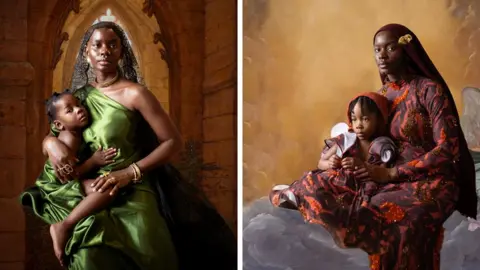 Dola Posh
Dola Posh
Dola Posh has multiple identities: Photographer; woman; Nigerian; mother; Briton.
Yet after giving birth, she no longer felt sure who she was.
Six days after her daughter was born, she was lying in a bed in an English hospital, in the midst of a covid lockdown.
She worried about how her life had changed and if she would ever again do what she loved - taking pictures.
Unable to visit, relatives kept on calling to check up on her and the baby. After a difficult pregnancy, Dola felt under pressure.
Her mother was thousands of miles away in the place she had left two years earlier – Lagos, Nigeria's biggest city.
All this put her “brain in a very dark place… I thought: ‘I’m me; the baby’s out, I’m still me.’ But no, I wasn’t me any more.”
The loss of identity can be one of the causes of postnatal depression, which disproportionately affects black women. Though she did not recognise it at the time, this was what Dola was suffering from.

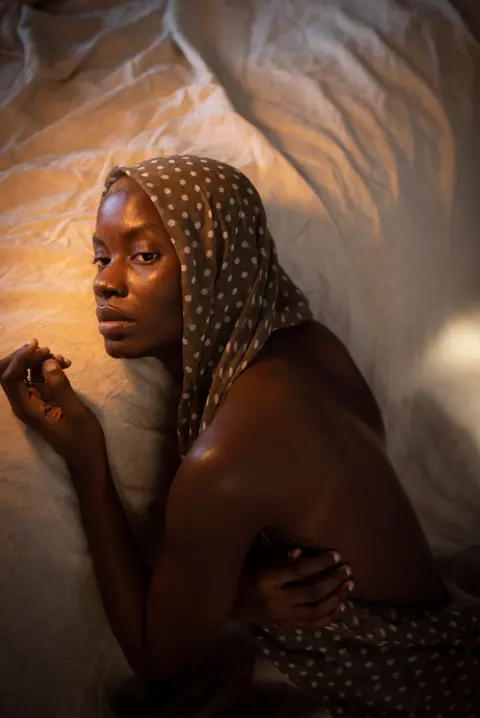 Dola Posh
Dola Posh
Dola began to take self-portraits to document her struggle with depression
Once out of hospital, she was almost immediately being bombarded with unsolicited advice.
There was “too much talk, too much control around how I should raise the child. In a way that also affected my mind. It made me feel like I didn’t know what I was doing. I wasn’t given the chance to be a mother.”
There is a matter-of-factness to the way the 33-year-old speaks about the events of 2020. She resists the tears this time, but she has cried – a lot.
One night, worn down from feeling like a zombie, because of a lack of sleep, and the isolation and mundanity of her new existence, a voice in her head told her to take her own life.

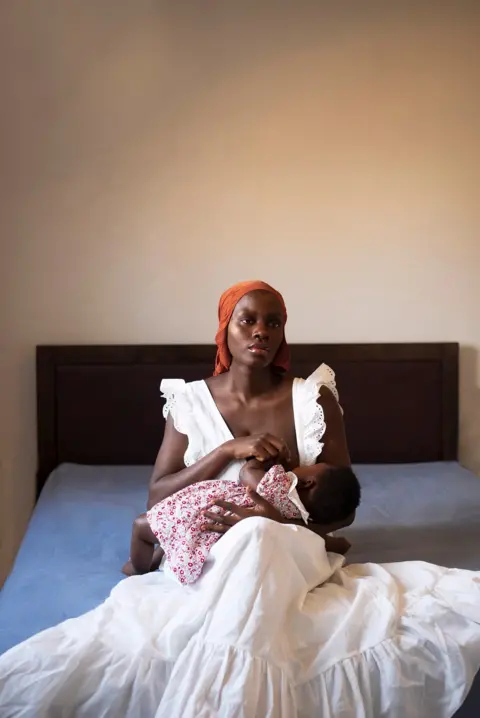 Dola Posh
Dola Posh
Dola found solace in photography and this first image that she created for the series was when Monioluwa was three months old
Emotionally unmoored, she clung on to her blanket as if it was a life jacket. Her baby girl – Monioluwa, meaning “I have God” in Yoruba – was by her side. She sang songs from home.
She then made a middle-of-the-night call to her health visitor who, fortunately, picked up and agreed to come round.
“I buried my head in shame, I just felt so much shame because it’s like I’m not even a good mother. I don’t have the strength to be a mother.”
Dola was persuaded to see a therapist, who encouraged her to use her camera as a way of dealing with her feelings.

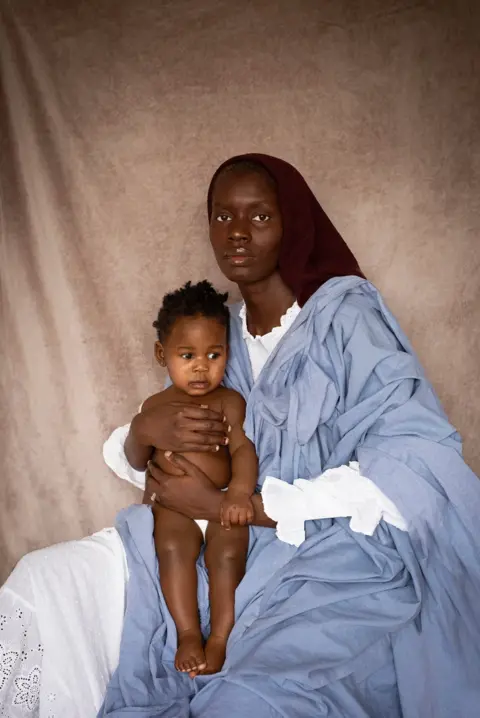 Dola Posh
Dola Posh
Monioluwa fell seriously ill when she was nine months old and while looking after her baby, Dola's anxiety increased - she says her "soul became lost"
Learning the craft in Nigeria, while studying for a marine biology degree, she stood out from the crowd with her dyed-gold hair and pink boots.
Dola began to build a reputation in Lagos’s male-dominated worlds of fashion and celebrity photography. But she gravitated towards portraiture as it allowed her to document people’s lives and encouraged subjects to share something more profound.
For the therapy she turned the lens on herself – and, using an app on her phone to remotely control the camera, began to produce a portfolio of shots of her with Monioluwa.
The mother-and-baby portrait, drawing on representations of the Madonna and child, is one of the fundamental motifs of the Western art tradition.
Dola’s photographs fit into this mode but the connection was unconscious at first and it took a mentor to point it out.

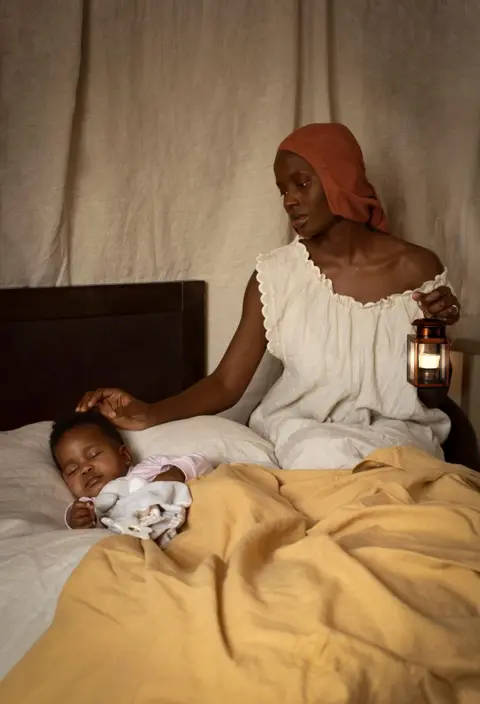 Dola Posh
Dola Posh
Looking at Monioluwa fast asleep when she was 10 months old, Dola wondered whether she would ever experience such sleep again herself
She was raised in a religious household - her father was a bishop in a Nigerian church. Paintings of Mary and Jesus were on the walls of her home, and the image of the mother and child was in the Bibles and hymn books.
“The colours: the green, red and gold; the gold frames and the light glow – growing up in that environment, it was all there in my subconscious.”
This all then came out in the way that she composed and lit her portraits.
“Sometimes you do things, you don’t even know why you do them and then when you sit down and reflect it’s like: ‘Oh!’”
The veil, or head covering, that had been part of her church-going uniform, also became an essential element of her work.
“When I put on the veil, it didn’t feel like that empty person any more. It felt more me… I was reconnecting with my family, it felt like I had their essence with me.”
The project was beginning to help Dola better understand her emotions.

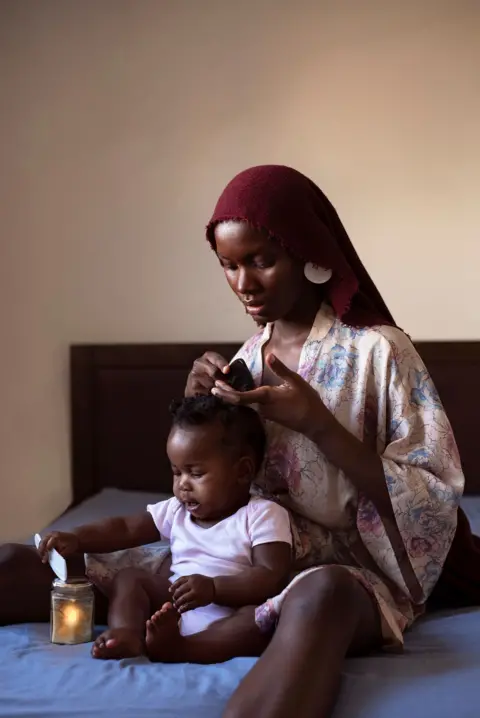 Dola Posh
Dola Posh
Dola needed to figure out how to be the best mother she could be, while also working as a professional photographer
She says that when she started sharing her story “that motherhood was not all joys and I suffered from postnatal depression, that opened a door for me not to have shame any more.
“Now I am starting to work on the stories of what actually happened and the darkness, how I crawled out of it, and try to depict that through images.”
Earlier this year, Dola won an award from camera manufacturer Leica to allow her to continue her series and encourage more women – particularly black women - to break the stigma around postnatal depression.
“I want a world where black mothers don’t have to carry so much burden and feel like they have to go through that journey alone and I want them to look in the media and see a reflection of themselves trying to make things work.”
In the UK, black women are more likely to experience postnatal depression than others, the Mental Health Foundation charity says. The reasons are complex, but Dola believes that being more open is vital in addressing the issue.
“It’s new for a woman to stand there and say: ‘I almost ended my life, I’m not ashamed of it – I am still an artist, I am still a woman and I have something to say.’”

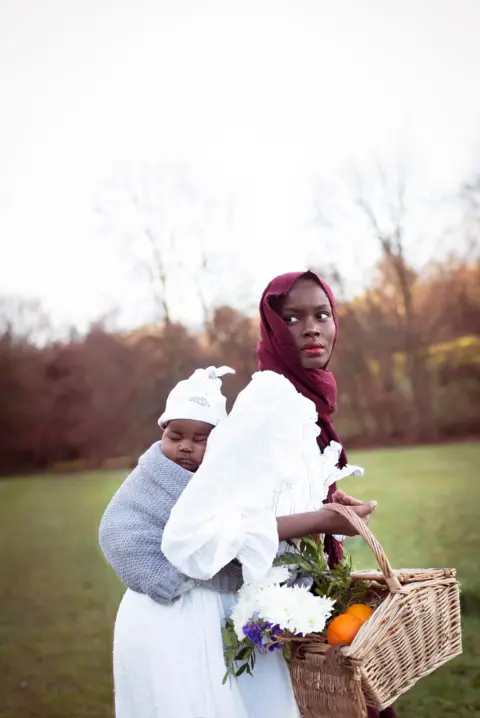 Dola Posh
Dola Posh
You may also be interested in:

 Getty Images/BBC
Getty Images/BBC

 1 month ago
11
1 month ago
11

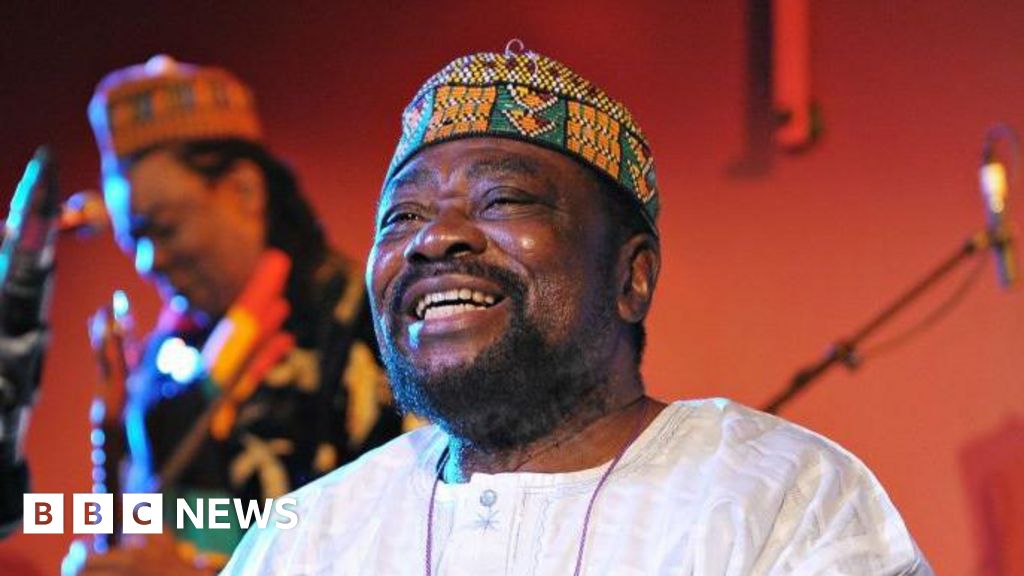
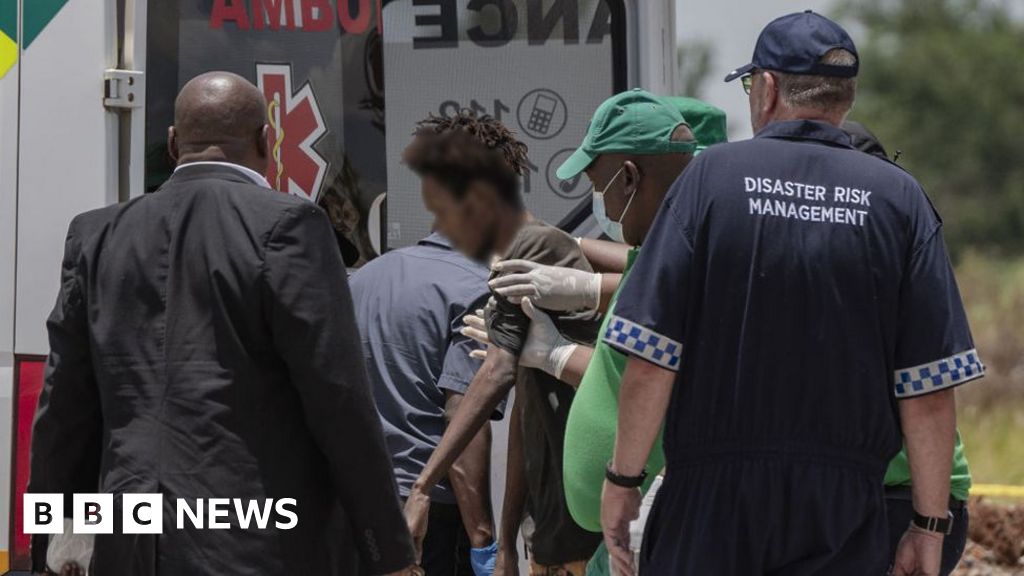





 English (US) ·
English (US) ·